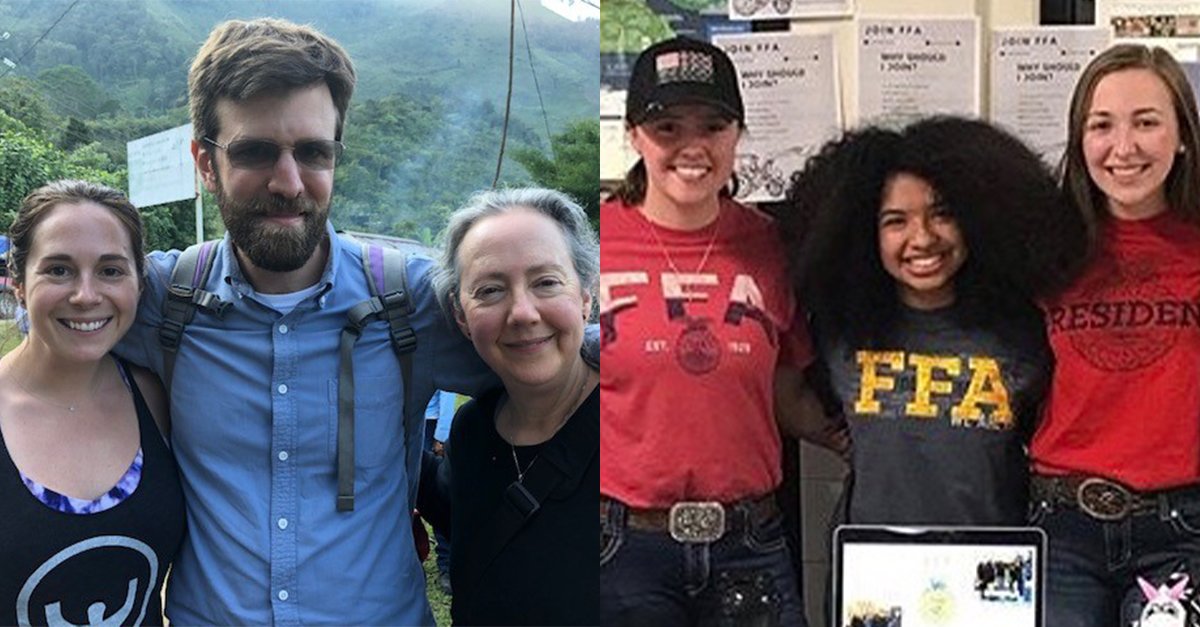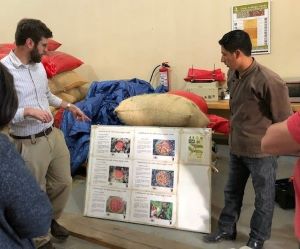
Scholarships, fellowships foster the future

This fall, the University capped off a highly successful and historic Driven campaign, raising more than $4 billion systemwide over the last 10 years. That's an astounding achievement for the University that will benefit generations to come — and it's all thanks to the generosity of donors.
During the campaign, The College of Food, Agricultural and Natural Resource Sciences (CFANS) community raised $309 million in total gifts, pledges and private grants. This generosity included more than $50 million to directly support CFANS students, with more than 130 scholarships and fellowships created. Meet scholarship recipient Hilariia Ponce, and fellowship recipient Stephen Pitts
Hilariia Ponce is a driven young leader with the ambition of lifelong learning. In high school, she loved being busy and involved in many activities. As an FFA vice president; dedicated student; avid volunteer in the community; student athlete; manager for two high school sports teams; participant in multiple clubs and holder of a part-time job, she was committed to growing her own skills while contributing to the growth of those around her.
Based on this description, it’s easy to make the assumption that Ponce would automatically attend the college of her choice. In actuality, however, the idea of going to college did not always seem feasible.
“I grew up as a struggling minority with a single parent who was raising six children,” said Ponce, a CFANS first-year student with a double major in Agricultural Education and Environmental Sciences, Policy and Management. “Being the last child, I struggled to look at college as an opportunity due to our funds until my junior year when I joined FFA,” she said.
FFA was new to her school, Ponce explains, and she became a committed leading officer, helping to elect chapter and region officers. She also competed in floriculture, poultry, and prepared public speaking, in which she was named section champion for her speech about diversity and inclusion in FFA.
At CFANS, Ponce is especially looking forward to the long-lasting relationships she’ll form here. “It is so heartening to receive a gift from a generous donor that allows a student like me to get a better opportunity at college,” she said. “I can’t wait for what CFANS will teach me, and that wouldn’t be possible without the fantastic donors.” Ponce is the recipient of a Cargill THRIVE Program scholarship and the W. Forrest Bear Agriculture Education Endowed Fund.
Stephen Pitts was an undergraduate student studying computer science when two service trips to Mexico opened his eyes to poverty in the developing world. After graduation, he joined the Jesuits, a Roman Catholic religious order that works internationally for education and social justice.
He pursued his master’s degree in International Development Economics, which taught him how to help people make long-lasting change to their communities of origin.
“My thesis was an impact evaluation of a coffee cooperative in the southern Mexico state of Chiapas. During my field research, I was introduced to the coffee value chain — from bean to cup — and the importance of providing producers with the opportunity to export a finished product,” said Pitts. “Building a coffee plant in the same communities where they harvest the coffee does more long term good than many fair trade solutions, which process beans in the United States.”
As the recipient of the Jean Kinsey Graduate Fellowship, Pitts is able to pursue his doctoral studies at CFANS in Applied Economics, continuing his interest in trade and development, and studying other industries like auto manufacturing in Mexico. “I also hope to learn more about the environment so that Latin America can develop sustainably, making use of their many natural resources without destroying them,” he said.
In the future, Pitts hopes to teach at a university sponsored by the Jesuits, train the next generation of development practitioners, and continue to work with projects in Latin America. “For the past two years, I’ve worked on the U.S./Mexico border in El Paso, Texas. My doctoral studies at CFANS are the next step in the call I feel to address the root causes of the suffering I have heard in this community.”







